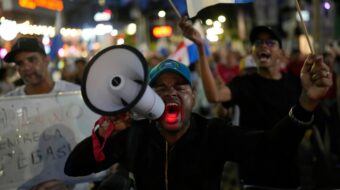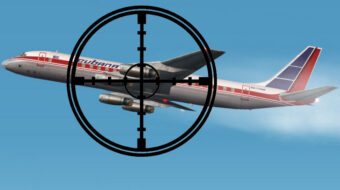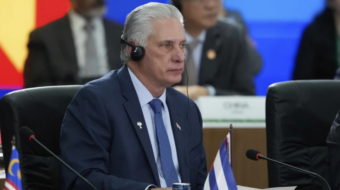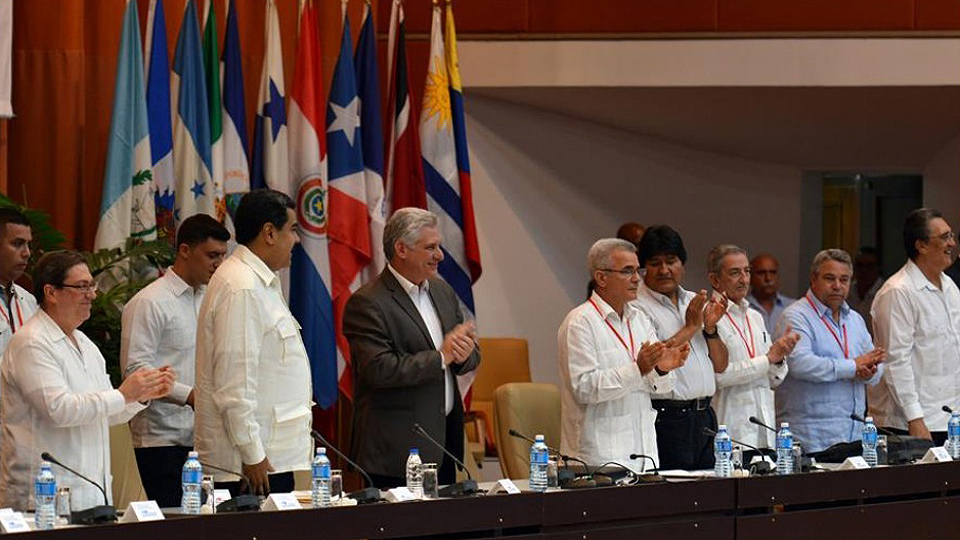
HAVANA—The first meeting of the São Paulo Forum (FSP) took place in that Brazilian city in 1990. The Forum idea came from Brazilian Workers’ Party leader Luiz Inácio Lula da Silva—known simply as Lula—and Cuban President Fidel Castro. The 24th such meeting took place in Havana, July 15-17. Present were 625 representatives of 168 left-leaning political parties and social movements from member states in Latin America, the Caribbean, and other regions—51 countries in all. This was the third FSP meeting to be held in Havana.
The original purpose of the FSP was to fashion a response by Latin American and Caribbean progressives to the fall of the Soviet Union and to their exclusion (save for Cuba) from political power in the region. The FSP evolved as a means for exchanging ideas and shared experiences in order to establish a workable political course and make adjustments along the way. The Forum has called for unity instead of sectarianism, reliance on electoral capabilities, and cross-border alliances for the sake of sustainable development and anti-imperialist resistance.
The FSP has an executive secretary—currently Mónica Valente of Brazil—and a “working group” that holds five meetings a year in addition to seminars and conferences on various topics.
The FSP has constantly had to deal with problems posed by imperialism and its enablers. These have included destabilizations and even coups against leftist governments, the spread of U.S. military bases, persecution and imprisonment of progressive leaders, and reigns of terror and violence.
The recent FSP meeting in Havana began with a “School of Political Formation,” a meeting of regional secretaries, a meeting of the Party of the European Left, and a regional meeting of the World Federation of Democratic Youth. The day concluded with a plenary “against colonialism and for anti-imperialist solidarity. “
The second day included a women’s meeting, a parliamentarians’ meeting, a “dialogue with social and people’s movements,” and workshops. The Working Group heard regional reports and proposals for statements that would conclude the meeting. Delegates attended a plenary on the “necessity for unity and Latin American and Caribbean integration,” and that evening joined gatherings throughout Havana organized by the local Committees for the Defense of the Revolution.
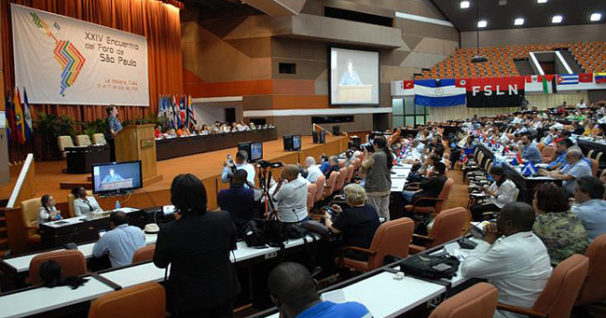
The last day began with a “Special Plenary on the Thought of Fidel Castro,” continued with a Working Group meeting, and finished with a plenary session at which reports from workshops and other meetings were heard. Executive Secretary Valente communicated an 18-point “Declaration of Havana” which the delegates approved.
The Declaration proclaimed, in summary, that Latin America, ostensibly a “zone of peace,” is living through a reactionary counteroffensive reflecting the expansionist nature of capitalism and U.S. aggression. While the negative effects of the concentration of property have deepened globally and while the United States and its allies have taken advantage of capitalist gains in the region, the FSP derives strength from the experiences of anti-imperialist and people’s governments.
The FSP acknowledges defeats, manifested particularly by the judicial persecution of leftist leaders, but declares that the “progressive cycle” has not ended and that capitalist “alternatives for humanity” are impossible. The FSP calls for unity of the left and of people’s forces in order to organize and to fight.
The FSP encourages the liberating and anti-capitalist efforts of social movements and their contribution toward the “sovereign integration of Our America.” It rejects U.S. anti-immigration policies. It calls for Lula’s release from prison in Brazil, the end of the U.S. blockade of Cuba, the elimination of U.S. bases, the end of U.S. occupation in Guantanamo, reparations for the Cuban people for U.S. aggressions, and reparations for Caribbean peoples on account of slavery.
The plenary sessions on the Forum’s last day featured strong messages of unity and revolutionary optimism from the speakers. For example:
Cuban President Miguel Díaz-Canel characterized the FSP as “an essential political protagonist and a space for building political alternatives in the region… We have the duty of defending Our America.”
President Nicolás Maduro of Venezuela opined that “thanks to the difficulties [we face] we’ve been able to create this beautiful project.”
Bolivian President Evo Morales: “the best homage to Fidel is the unity of the peoples of Latin America.”
Salvador Sánchez Cerén, president of El Salvador: “As the left, we must continue being the hope of our peoples…. We are an inexhaustible source of experience confirming that a better world is indeed possible.”
Denzil Douglas, ex-prime minister of San Cristobal and Nieves, extolled the “audacious idea that we can work together for a world that is just, equitable, and peaceful.”
Vietnamese Communist Party representative Nguyen Duc Loi stated that “solidarity with Cuba comes from the heart,” and also that “capitalism and neoliberalism will never solve all the problems of society.”
To conclude the three days, José Ramón Machado Ventura, a vice president of Cuba’s Council of Ministers, declared that, “Seen from the Fidelista perspective, conditions these days serve as formidable incentives for us to gather up moral energy and better organize our peoples.” And, “There won’t be any end of history as long as capitalism exists.”
The São Paulo Forum approved the following plan of action:
- Demand the immediate liberation of Lula and begin an international campaign to win it.
- Begin a campaign against the political persecution of democratic movement and people’s leaders.
- Defend the region as a zone of peace; be an observer of the Colombian peace process.
- Establish a network of schools for political formation.
- Improve political communication among member parties.
Like free stuff? So do we. Here at People’s World, we believe strongly in the mission of keeping the labor and democratic movements informed so they are prepared for the struggle. But we need your help. While our content is free for readers (something we are proud of) it takes money — a lot of it — to produce and cover the stories you see in our pages. Only you, our readers and supporters, can keep us going. Only you can make sure we keep the news that matters free of paywalls and advertisements. If you enjoy reading People’s World and the stories we bring you, support our work by becoming a $5 monthly sustainer today.



